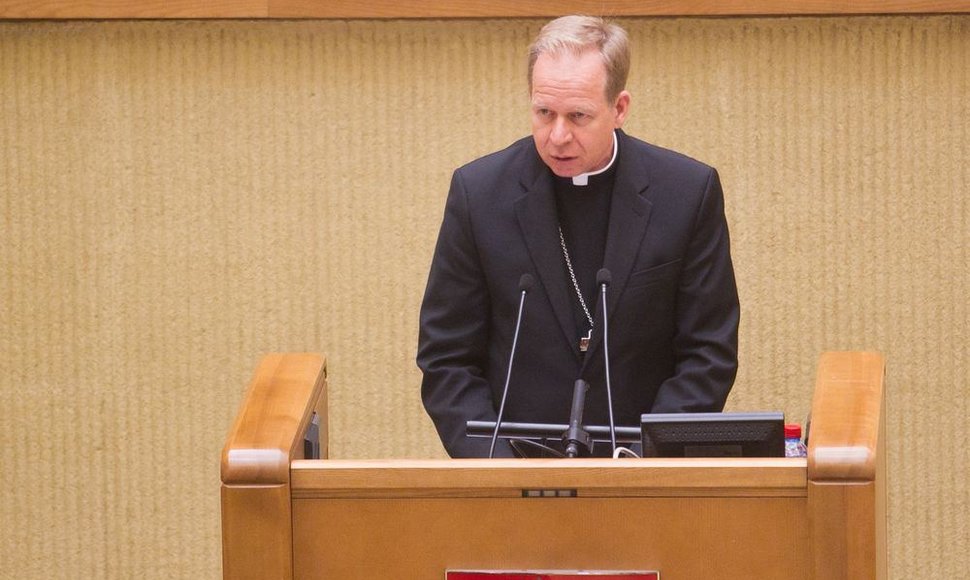Speaking at the Lithuanian parliament on Monday, he has compared EU legislation on violence against women to Lithuania's occupation by the Soviet Union.
"We are seeing more and more legal products with the European trademark that destroy the foundations which led to the emergence of the Sąjūdis and the vital pylon of our nation. By attempting to penetrate into our legal system via the legal Trojan horses, they are first of all doing everything to undermine the family institute – the core of Lithuania, which our Constitution enshrines as the basis of our society and nation," Grušas said at a solemn ceremony held at the parliament to mark 25th anniversary of the Sąjūdis movement which helped Lithuania regain independence from the USSR.
"This is done by pushing conventions and declarations that erase the difference between a man and a woman, between a father and a mother, and quietly introducing the concepts of genderism. Vilnius municipality is already listing Parent I and Parent II in applications to kindergarten. Under the disguise of protecting the rights of children or women, efforts are made to undermine the different but equally important role of both parents in a family, as well as family autonomy," the archbishop said.
In his words, to create a democratic and open society, people have to be cautious and stand strong against the pseudo-teachings from the outside – just like Sąjūdis did in its heyday. Grušas recalled that, 25 years ago, Lithuanians were told to stay out of the way of the reforms launched by the then Soviet Union leader Mikhail Gorbachev.
"However, Sąjudis understood that those reforms were wrong and did not lead to freedom. In advocacy of common European documents or programs, concepts of tolerance and human rights are operated in a similar manner today. The objective of some of these proposals does not lie in respect of person but a subtle attempt to push an ideology that is alien to human nature," he said.
The Lithuanian liberation movement Sąjūdis was started on June 3, 1988, with the constituent assembly of the organization held in October that year.
The public movement helped restore Lithuania's independence from the Soviet Union in 1990.
The Roman Catholic Church of Lithuania has been a fierce critic of the Council of Europe Convention on Preventing Violence Against Women, saying that concepts like "gender" introduced in the document are there to undermine natural differences between the sexes.












